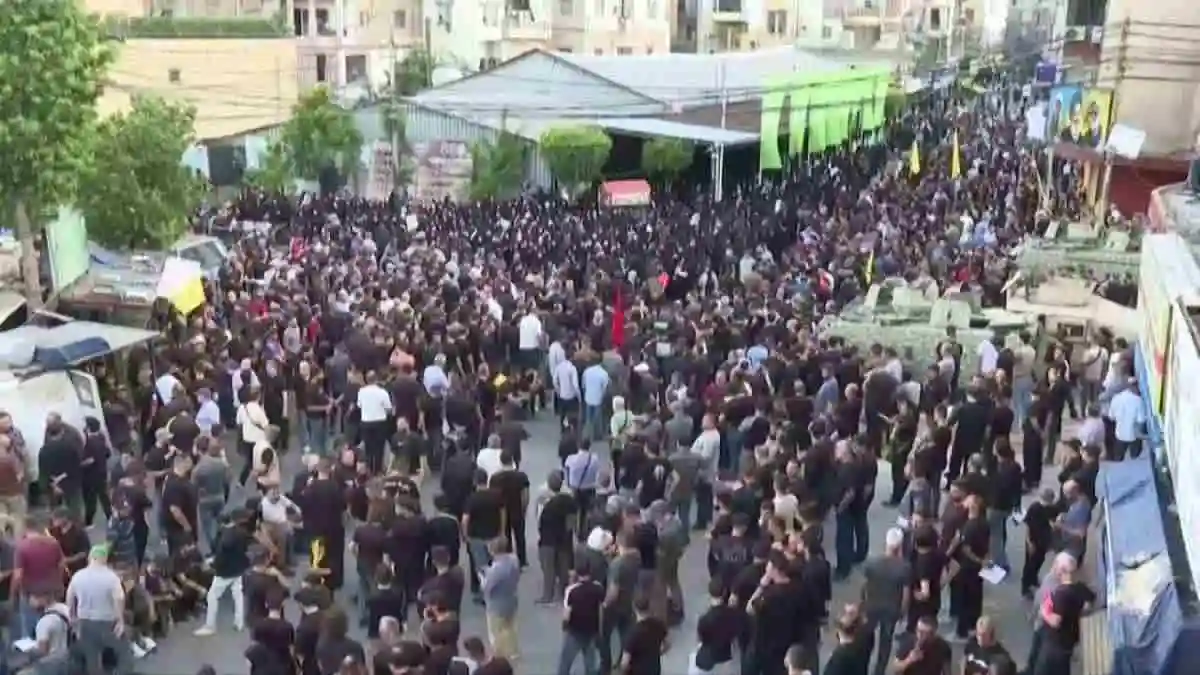
In recent days, Lebanon has been rocked by a series of violent explosions involving wireless communication devices, including walkie talkies and pagers. These incidents have sparked widespread panic and raised questions about the implications for regional security and the broader geopolitical landscape.
What Happened?
The explosions first started with reports of pager devices detonating simultaneously across several areas in Lebanon, causing casualties among both civilians and Hezbollah-affiliated members. As the situation unfolded, it became clear that this attack was not a one-time event, as explosions linked to walkie-talkies followed the next day. According to official reports, these blasts have killed at least 12 people and injured hundreds more.
These bombings were reportedly carried out using improvised explosive devices (IEDs) implanted within these communication tools, with many speculating that the network responsible for these devices was about to be uncovered by Hezbollah.
Potential Motivations Behind the Attack
There are a few theories surrounding why these explosions happened now. Some experts suggest that this is the opening act of a broader conflict, reminiscent of Israel’s Six-Day War in 1967 or other preemptive strikes seen throughout history. Others believe that Israel took action to prevent Hezbollah from uncovering the communication network that had been compromised.
These explosions serve as a stark reminder of the complexities of modern warfare. Israel has a history of targeting Hezbollah’s infrastructure to weaken the group’s military and intelligence capabilities. Some believe this is a move to establish dominance and deter further aggression from Hezbollah and its Iranian allies, who typically operate through proxy forces rather than direct military action.
The Geopolitical Landscape: Israel, Hezbollah, and Iran
The conflict between Israel and Hezbollah has long roots, tied to Iran’s influence in the region. Iran, which backs Hezbollah, prefers indirect warfare when it comes to Israel. While Hezbollah has the capability to strike, they often opt for strategic and sporadic attacks rather than full-blown warfare. Israel, on the other hand, has superior military and intelligence resources, and its escalation in the region could be seen as a calculated move to prevent Hezbollah from launching more severe attacks.
Despite these tensions, both Hezbollah and Iran have refrained from launching an all-out war. This could be attributed to Israel’s ongoing military buildup along its border with Lebanon. Israeli Prime Minister Benjamin Netanyahu has consistently taken a firm stance against Hezbollah and Iran, determined to avoid any perception of weakness.
U.S. Involvement and Diplomatic Strain
As tensions rise, the role of the United States becomes increasingly significant. Secretary of State Antony Blinken’s recent visit to the region highlighted the growing strain between the U.S. and Israel over the situation. The U.S. was reportedly not informed of Israel’s recent moves, including an attack that killed a key Hamas negotiator in Tehran. This has complicated diplomatic efforts, with the U.S. pushing for a ceasefire while Israel seems focused on pursuing its own objectives.
Blinken’s remarks emphasize the increasing difficulty the U.S. faces in maintaining its role as a mediator in the region. He underscored the “need for political will” in resolving the conflict, though many analysts suggest that a ceasefire may be a distant goal given the current circumstances.
The Impact on Civilians
While the primary targets of these bombings appear to be Hezbollah operatives, the indiscriminate nature of the attacks has led to tragic civilian casualties. Reports indicate that at least two children were among the victims. The devices, detonating across various public spaces, such as grocery stores and schools, caused widespread chaos.
This has amplified fears among ordinary Lebanese citizens, who now find themselves caught in the crossfire. Hospitals have been overwhelmed, treating injuries mostly related to the blasts, including severe wounds to the hands, eyes, and other areas of the body.
Escalation or Deterrence?
One pressing question on many minds is whether this escalation could serve as a deterrent to Hezbollah and Iran or if it will trigger a broader conflict. While Hezbollah and Iran have historically been reluctant to engage in full-scale warfare with Israel, the unpredictability of such situations leaves many unsure of what lies ahead.
Netanyahu’s government has made it clear that they are prepared for a prolonged military engagement if necessary. Israel’s troop movements and continued rhetoric suggest that they are sending a strong message to Hezbollah. But whether this will succeed in deterring further attacks or provoke a retaliatory response remains to be seen.
What Comes Next?
The situation in Lebanon remains volatile. With walkie-talkie explosions following the pager attacks, there is a palpable sense of insecurity and fear among the population. Hezbollah has yet to respond directly to these attacks, but the possibility of escalation looms large.
The international community is watching closely, particularly as the U.S. navigates its delicate position in the region. With Israel determined to maintain its military edge and Hezbollah likely regrouping, Lebanon could face more instability in the coming days.
The walkie-talkie explosions in Lebanon have opened a new chapter in the ongoing conflict between Israel and Hezbollah. While the immediate impact has been devastating for civilians, the long-term consequences of these actions will likely shape the region’s future security landscape. As both sides weigh their next moves, the world watches, hoping for a resolution but fearing a wider war.